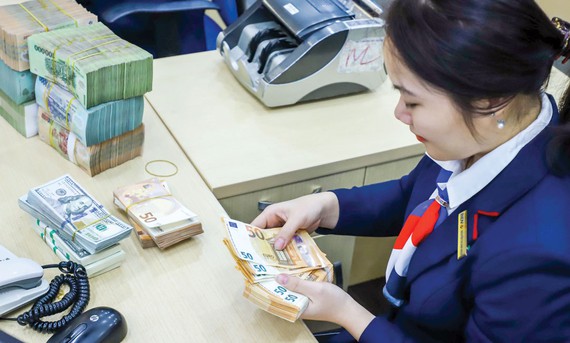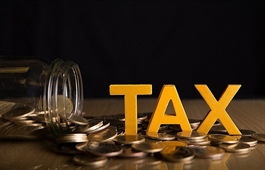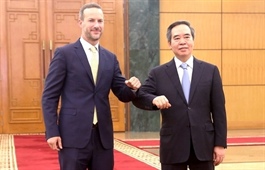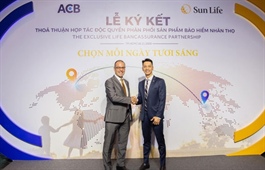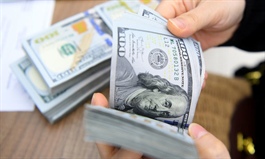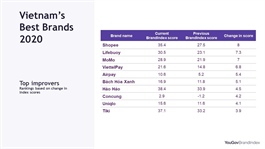Remittance inflow into Vietnam not steady
Remittance inflow into Vietnam not steady
Remittances being sent to Ho Chi Minh City by Vietnamese diaspora living and working in several countries across the globe has increased again in the last three months, according to the State Bank of Vietnam branch in Ho Chi Minh City. Early this year, the sudden outbreak of the Covid-19 pandemic had affected the jobs and incomes of many Vietnamese diasporas in several countries.
Illustrative photo.
|
Saigon Investment spoke with Mr. NGUYEN TRI HIEU, a finance and banking expert, about the probable causes of this increase in cash inflow from Vietnamese again sending funds back to their homeland.
JOURNALIST: - Sir, almost USD 4 bn has been transferred to Ho Chi Minh City from Vietnamese diaspora working in several countries in the last ten months, an increase of 2% since 2019. In October alone, upto USD 500 mn was transferred into commercial banks in the City. However, only USD 3 bn was recorded in the first seven months of the year, a 1.2% year-on-year drop. Please could you explain the reason for this?
Dr. NGUYEN TRI HIEU: - In my opinion, cash inflow from overseas Vietnamese diaspora has risen again over the last three months because overseas Vietnamese are paying keen attention to the pandemic situation in their homeland. They see that Vietnam has contained the pandemic very well, so they have sent more money back to the country. They want to support their relatives here first, and some of the cash they are investing in different business ventures in Vietnam.
Speaking to the media, the State Bank of Vietnam branch in Ho Chi Minh City said that cash inflow from overseas Vietnamese diaspora has increased because of the Covid-19 pandemic. Most of the Vietnamese diaspora has cut down on spending as they are following social distancing and also isolation, therefore are sending more money back home to support their relatives in Vietnam. Cash inflow increased in the third quarter in Ho Chi Minh City because Vietnamese diaspora in the United States makes up a large majority of the overseas Vietnamese community and the current economic situation has improved in the US, making it possible for Vietnamese to send more savings back to their homeland.
Ho Chi Minh City receives the maximum amount of cash inflow from overseas Vietnamese diaspora, as compared to the rest of the country. Decades ago, many Vietnamese had migrated from Ho Chi Minh City to neighboring provinces like Binh Duong, Dong Nai and Ba Ria-Vung Tau. This is why cash inflow in Ho Chi Minh City from overseas Vietnamese diaspora is the largest and much more than other cities and provinces.
What is important, however, is that only a small percentage of the Vietnamese community in the USA has been affected by the coronavirus, making it possible for them to maintain a stable income and continue their business activities. One main point to be noted is that the Vietnamese community in the USA does not have big corporate business houses. Their businesses are mainly small household run, similar to that in Vietnam. They are small enterprises, providing essential services like doctors, dentists, law firms, automobile repair shops and small retail outlets. These economic activities have not been affected by the pandemic, enabling Vietnamese Americans to lead their lives better than most American people, and their incomes too have remained stable.
- Sir, in a recent report on remittances, the World Bank (WB) has predicted that remittance inflow into Vietnam will decline by more than 7%, about USD 15.7 bn, and 5.8% of the GDP. What is your assessment?
- I don't think remittance inflow into Vietnam will increase. The last three months saw a sudden rise in remittances to Ho Chi Minh City because of the situation around the country. This is not a steady situation, seeing that remittance inflow into Vietnam dropped remarkably early this year. By end of 2020, the disease across many countries, especially the USA, could worsen in peak winter when the temperatures fall quite low. Efforts to curb the disease have not been effective since the US government has not paid sufficient attention to lockdown measures.
| I am not very optimistic about remittance inflow as a source of investment capital because the Covid-19 pandemic has made it hard for people to make investments anywhere. This is why the Vietnamese diaspora usually invests in their businesses in their local areas, instead of making investments in other countries, including Vietnam. |
Therefore, it can be predicted that the disease will worsen in the USA later in the year. Additionally, remittance inflow from Vietnamese diaspora in many countries has been badly affected because the Covid-19 pandemic virus has mutated and become very complicated, causing lots of Vietnamese workers to lose their jobs. There have been positive signs with an increase in remittance inflow into Ho Chi Minh City over the last few months, but I am not too optimistic about substantial and steady growth. Instead, it is very likely to fall as predicted by the World Bank.
- Sir, we have long encouraged overseas Vietnamese to invest in Vietnam. They are currently implementing about 3,000 projects, with total registered capital of USD 4 bn, creating a large number of jobs and making huge contribution to the economic development of Vietnam. What measures do you think we need to deploy so as to attract more such resources?
- At the moment, I am not very optimistic about remittance inflow as a source of investment capital because the Covid-19 pandemic has made it hard for people to make investments anywhere. This is why the Vietnamese diaspora usually invests in their businesses in their local areas, instead of making investments in other countries, including Vietnam. For this reason, I believe remittance inflow as investment is likely to be small, and this situation could last until next year. With regards to how to attract investments from Vietnamese diaspora, I think we need to offer more suitable incentive policies, and besides that this can only happen after the pandemic is fully curbed.
I still remember after Vietnam opened its doors to international trade, especially after 2000 when Vietnam and the USA signed a bilateral trade agreement, and many Vietnamese Americans were happy and returned back to Vietnam to find business opportunities. However, all their efforts came to naught when they were faced with too many regulations, complicated procedures and unfairness in the business culture. The biggest problem for these investors was that it was impossible for them to access capital from banks in Vietnam. All these things hampered their investment plans in Vietnam.
- Thank you very much.


